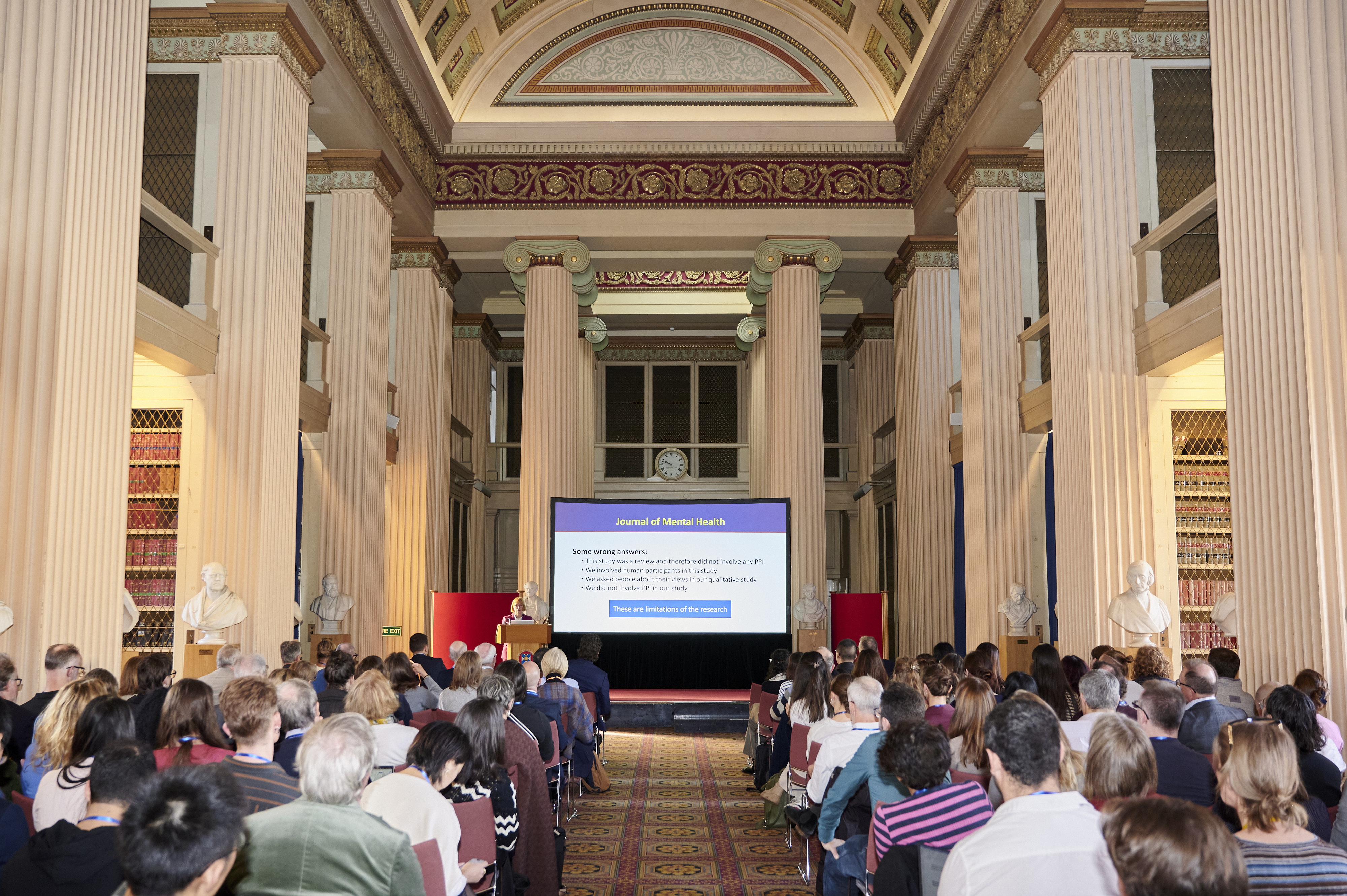Dr Lenny Buxton recently completed her PhD at University College London, where she researched quality of life of people with learning disabilities. She is now a post-doctoral researcher and study manager at the Social Health Hub in Queen Mary University of London.
A new approach to research
At the Social Health Hub, we’re researching how a person’s environment and experience of social isolation can impact their mental health.
The research goes beyond a biomedical understanding of severe mental illness and will look at what else is going on in person's life - the context, the environment and the community around them. These ideas have always been interesting to me in my research, so they really attracted me to working here.
The study I’m working on will explore the association between social isolation and mental health outcomes for 600 participants with Severe Mental Illness, from urban and rural areas across England. We are interested in clinical outcomes, such as symptom severity as well as outcomes related to personal recovery, such as quality of life and feeling able to function in day to day life. And we want to explore not just the association between social isolation and mental health, but also potential psychosocial or biological mechanisms that might explain these associations. At the start we’ll collect information to map participant’s social networks and social identities. Then, the study will follow these 600 people for 12 months, collecting information about their day to day lives.
For example, we’ll do something called “ecological momentary assessment”. Over seven days, participants will answer multiple prompts on their phone, asking about their social interactions and activities, as well as how they are feeling. Through this method we will collect real time data to help us understand in the moment associations between social activity, mood and mental health symptoms. We’ll also carry out a “neighbourhood tour” where a participant will guide a researcher around their local area to understand more about concepts of place, safety and belonging.
Throughout the study we will monitor participant mental health outcomes though surveys and interviews, as well as linking our data to participant health records, and biological data drawn from blood samples.

The importance of co-production
I co-produced elements of my PhD with people with learning disabilities, which added a lot of value to the research. Now, I’m working on co-production and involvement with our fantastic lived experience advisory panel (LEAP), which is being coordinated with McPin.
The purpose of the Hub research is to identify new community and social approaches to support people with severe mental illness, and co-production helps us make sure our research is focused in the right way. We know these approaches will always be alongside psychological treatments. But, even with the best access to pharmacological and therapeutic treatment, people often face the same challenges in their social environments which were present at the onset of their conditions. This research could add to the evidence base to advocate for change in the policies and approaches which impact their day to day life.
More about me
Alongside my PhD, I volunteered and then worked part time in a community centre for young people who were experiencing homelessness. Many had complex mental health, some experiencing psychosis. I saw how important it is for people to have a place where they belong, where they can come and feel comfortable and connect with others. There are less and less places like this, I think because the role that these community spaces play in building connection and supporting mental health is greatly underestimated.
Community and groups are important for me too - I swim in the sea throughout the year as part of an LGBTQ+ swimming club, and I even swam the channel in a relay team. I also recently joined a mountain biking club, so I've been spending a lot of time out on the South Downs, getting covered in mud!

What I hope we’ll achieve
After we’ve finished analysis, we’ll work with people with lived experience to develop interventions and approaches. At the moment, we're thinking this could be things like social prescribing and social action groups, but the findings from our research will shape what these could be.
We want to find out what impacts on people's lives that is, to some extent, outside of their control. For example, we know that socioeconomic deprivation is associated with people's mental health. But if we can describe properly – with scientific evidence - what the psychosocial and biological mechanisms which explain this association, we can start to influence change.
It would be great if we can really bring out evidence that identifies the things that need to change and show what we can put more effort into. These could result in real, tangible changes for people affected by severe mental illness.
PPIE Awards Webinar

MHP Research Summit Hot Topic: Collaboration


